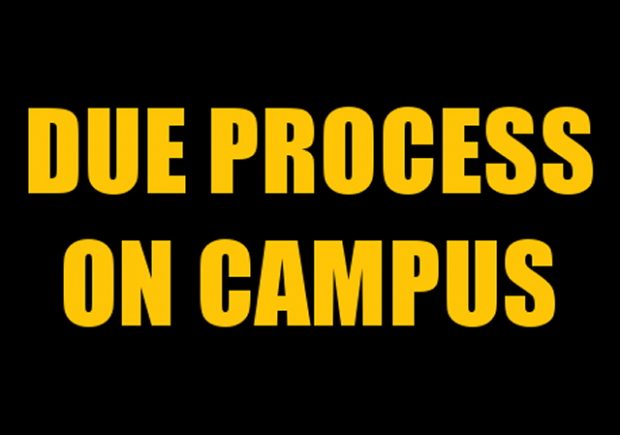ACCUSED ON CAMPUS: John Does Push For Right To Cross-Examine
“Risky Business.” That was the theme of the fraternity party where two University of Michigan juniors danced together and eventually made their way to his bedroom. Their accounts of what happened after that diverge sharply. She filed a campus complaint, saying she had been too drunk to consent to sex. He told a campus investigator she didn’t appear drunk, and she verbally consented. After he was found responsible in a case where the evidence was split virtually 50-50, he withdrew from school just 13.5 credits shy of graduation.
In this case – and about 500 other federal and state lawsuits since 2011 – the accused took the university to court, claiming the school’s Title IX disciplinary process was unfair. Echoing a concern raised in many of these suits, the University of Michigan student said he should have been allowed to cross-examine his accuser and her witnesses, to bring out possible inconsistencies, mistaken memories, or ulterior motives in a way a written report never could. As the push for cross-examination accelerates, questions around the practice are far from settled: Is it the best way to get at the truth in some campus sexual misconduct cases? Or is it a threat to progress? Can there be a version that looks very different from the courtroom stereotype of badgering the witness?
Around the country, discipline practices on many campuses don’t include any form of cross-examination, and can be “very frustrating” for accused students who say their sexual interactions were consensual, says Cynthia Garrett, co-president of Families Advocating for Campus Equality, which provides support for accused students and pushes for Title IX reforms. Often they are asked “to prepare a list of questions in advance and hand them over to a supposedly neutral adjudicator,” she says. But then adjudicators skip a lot of questions, or ask “in a way that softens the question, makes it less adversarial, which completely undermines the purpose.” Universities “owe a duty of care to both parties.” For an accused student “to have your school, whom you love and you’re loyal to, actually not believe that you would never do something so vile – it’s a huge emotional experience,” Garrett says.
The 6th Circuit Baum ruling is stronger, but the Haidak case was on balance a victory for due process, says Samantha Harris, vice president for procedural advocacy at the Foundation for Individual Rights in Education. The goal of due process advocates is not for the “pendulum to swing back” to when it was widely perceived that schools were “sweeping cases of sexual misconduct under the rug,” says FIRE’s Ms. Harris. “It isn’t a zero-sum game where either the victims are not getting a fair shake or the accused are not getting a fair shake. It should be a fair process that is maximally aimed at getting at the truth of what actually happened.”
csmonitor-Stacy Teicher Khadaroo thecollegefix.due process decision-G.Piper

